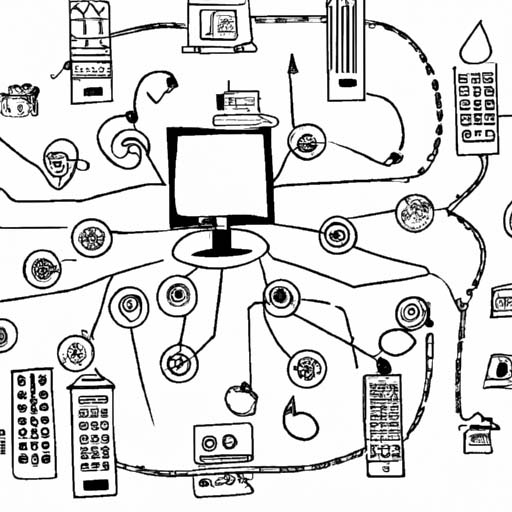In today’s digital age, user data has become a valuable commodity, with businesses relentlessly collecting and processing vast amounts of information to drive targeted marketing campaigns and improve customer experiences. With the rise of automation, the speed and efficiency at which data can be collected and processed have increased exponentially.
However, this advancement also raises serious concerns about privacy and the ethical implications of such practices. In this article, we will delve into the world of user data and automation, exploring the privacy concerns that arise due to automated data collection and processing.
The Growth of Automated Data Collection
Advancements in technology have revolutionized the way businesses operate, with automation playing a pivotal role in data collection and processing. From gathering personal information through website cookies and tracking pixels to analyzing user behavior through machine learning algorithms, automation has streamlined the process of compiling valuable insights about consumers.
Dashes, em dashes, semicolons, and parentheses allow writers to include additional information that adds context or emphasis to their sentences. For example, automated data collection techniques encompass a wide range of methods – including but not limited to – cookie tracking, IP address logging, social media monitoring, and even facial recognition software. (These technologies enable businesses to develop detailed user profiles and deliver tailored advertisements; however, they also pose serious concerns regarding user privacy.)
The Privacy Paradox
Contrary to popular belief, increased automation does not necessarily equate to improved privacy protection; in fact, it often leads to the opposite. The sheer volume of data collected, combined with sophisticated analytics capabilities, enables businesses to create highly granular profiles of individual users. Such extensive profiling raises legitimate concerns about the violation of privacy rights, as individuals may unknowingly surrender personal information that can be exploited by unscrupulous entities.
Social media platforms, for instance, have come under intense scrutiny for their data collection practices. While users may perceive their use of these platforms as harmless and free, they often underestimate the scope of data being collected and the potential consequences of targeted advertising and content manipulation. (Despite privacy settings and consent agreements, users remain largely unaware of the extent to which their personal information is collected, stored, and utilized by various businesses.)
The Dystopian Potential
As automation continues to advance, the potential for abuse and misuse of user data becomes increasingly evident. Without strict regulations and ethical guidelines in place, businesses can exploit automation to manipulate user behavior, curate personalized news feeds, and invade individual privacy. The implications of such practices can be far-reaching, contributing to the creation of filter bubbles that limit exposure to diverse perspectives and enabling the spread of misinformation.
(Moreover, automated data collection also exposes users to the risk of data breaches and cyberattacks, putting their personal information and financial security in jeopardy.) The more data that businesses collect and store, the more attractive targets they become for cybercriminals seeking to profit from stolen information.
Towards a Privacy-First Future
Addressing privacy concerns in the era of automated data collection requires a multi-faceted approach involving government regulations, industry standards, and user awareness. High-profile data scandals, such as the Cambridge Analytica incident, have sparked public outrage and brought privacy issues to the forefront. This increased awareness has led to calls for stricter privacy regulations and data protection laws, aimed at safeguarding user information and holding businesses accountable for their data practices.
(Additionally, businesses themselves must take proactive measures to prioritize user privacy, such as implementing stringent security measures, transparent data collection policies, and providing users with greater control over their personal information.)
In conclusion, the advent of automation has significantly transformed the landscape of data collection and processing. While it offers incredible benefits in terms of efficiency and personalization, it also raises concerns about user privacy and the potential for abuse. Striking a balance between automated data collection and protecting user privacy is crucial for a future in which technology and privacy coexist harmoniously. By promoting transparency, implementing robust security measures, and enacting regulatory safeguards, we can navigate towards a privacy-first digital world.
